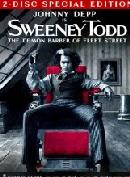HOME PAGE
SITE GUIDE
SEARCH
ADVERTISING AT CURTAINUP
REVIEWS
FEATURES
NEWS
Etcetera and
Short Term Listings
LISTINGS
Broadway
Off-Broadway
NYC Restaurants
BOOKS and CDs
OTHER PLACES
Berkshires
London
California
New Jersey
Philadelphia
Elsewhere
QUOTES
TKTS
PLAYWRIGHTS' ALBUMS
LETTERS TO EDITOR
FILM
LINKS
MISCELLANEOUS
Free Updates
Masthead
Writing for Us
A CurtainUp Los Angeles Review
The Ballad of Emmett Till
| Leave the casket open. I want people to see. I want everybody to remember. — Emmett's Mother
|

Lorenz Arnell
(Photo: Ed Krieger) |
A mischievous youngster who came down from his native Chicago to visit his mother's sister in Mississippi, Emmett has no idea what to expect. He's overcome a lot in his short life, including a father who was killed in World War II and a bout with polio which left him with a swagger to compensate for a walk and a whistle to compensate for words that wouldn't come. Compensate is the key word, as Emmett, or Bobo as he's called, always tries to make up.
Bayeza takes her time, showing us Bobo -- proud of his possessive mother and riding on a Ferris wheel with a giggling girl. His mother doesn't want him to go south but he persuades her, like he always does. Once there, it's a different story, as he works with his cousins in the cotton fields. In a quiet scene in which he's fishing with the Preacher (Bernard Addison), his aunt's husband, he begs to talk "man to man." Preacher laughs but, seeing the boy's crestfallen face, accedes. We hear the boy struggling with his perception of life and who he is.
Emmett also rides with his cousins to a part of town he doesn't know, where old men play chess and there's a candy store. Bobo goes in to buy some gum. Behind the counter is a pretty girl. What happens is never clear but whatever it was terrifies the other kids who bundle him into the car and barrel home.
The scene where the men abduct him is played in darkness, illuminated by a flashlight and spotlighting Preacher and the aunt at the side of the stage. Despite their pleas, the two men take Bobo. We see them in silhouette behind a scrim as they beat him and as he screams. What he says as the pistol whips his head is devastating: "I'm as good as you are. My grandmother was white."
In an article by William Huie, the men admit to the crime and to Bobo's words. They're acquitted since in those days, black people were not considered equals. Bobo is shot and thrown in the river. His mother's words, quoted at the top of this review, are an unforgettable epilogue.
The cast is splendid, and all but Arnell play multiple roles. In addition to Arnell, shy, boastful and frightened as Bobo , there is Karen Malina White who plays his beautiful imperious mother and little cousin with equal skill; Bernard Addison as the jovial Preacher who tells a horrific tale of black people forced to serve as a human levee during a flood; Rico E. Anderson, a terrifying presence with his inhumane snarl; and Adenrele Ojo, who ranges from Emmett's grandma to his teasing teen-age boy cousin without missing a beat.
In an incredible alignment, Ben Bradley, who loved the play and was its initial director, was murdered New Year's Day. Shirley Jo Finney, his long-time colleage, jumped in and brought the play to its seamless conclusion. Ben would be proud!
|
The Ballad of Emmett Till Playwright: Ifa Bayeza Director: Shirley Jo Finney Cast in alphabetical order: Bernard Addison, Rico E. Anderson, Lorenz Arnell, Adenrele Ojo, Karen Malina White. Set Design: Scott Siedman Lighting Design: Kathi O'Donohue Costume Design: Naila Aladdin-Sanders Sound Design: David B. Marling Choreography: Ameenah Kaplan Prop Design: T. Theresa Scarano Dialect Coach: JB Blanc Technical Director: Scott Tuomey Production Stage Manager: Elna Kordijan Publicist: Lucy Pollak Running time: 90 minutes Running Dates: February 20-April 3, 2010 Where: The Fountain Theatre, 5060 Fountain Avenue, Los Angeles. Reservations: (323) 663-1525. Reviewed by Laura Hitchcock on February 20. |
|
Subscribe to our FREE email updates with a note from editor Elyse Sommer about additions to the website -- with main page hot links to the latest features posted at our numerous locations. To subscribe,
E-mail:  esommer@curtainup.comesommer@curtainup.com esommer@curtainup.comesommer@curtainup.comput SUBSCRIBE CURTAINUP EMAIL UPDATE in the subject line and your full name and email address in the body of the message -- if you can spare a minute, tell us how you came to CurtainUp and from what part of the country. Visit Curtainup's Blog Annex Curtainup at Facebook . . . Curtainup at Twitter REVIEW FEEDBACK Highlight one of the responses below and click "copy" or"CTRL+C"
Paste the highlighted text into the subject line (CTRL+ V): Feel free to add detailed comments in the body of the email. . .also the names and emails of any friends to whom you'd like us to forward a copy of this review. |






